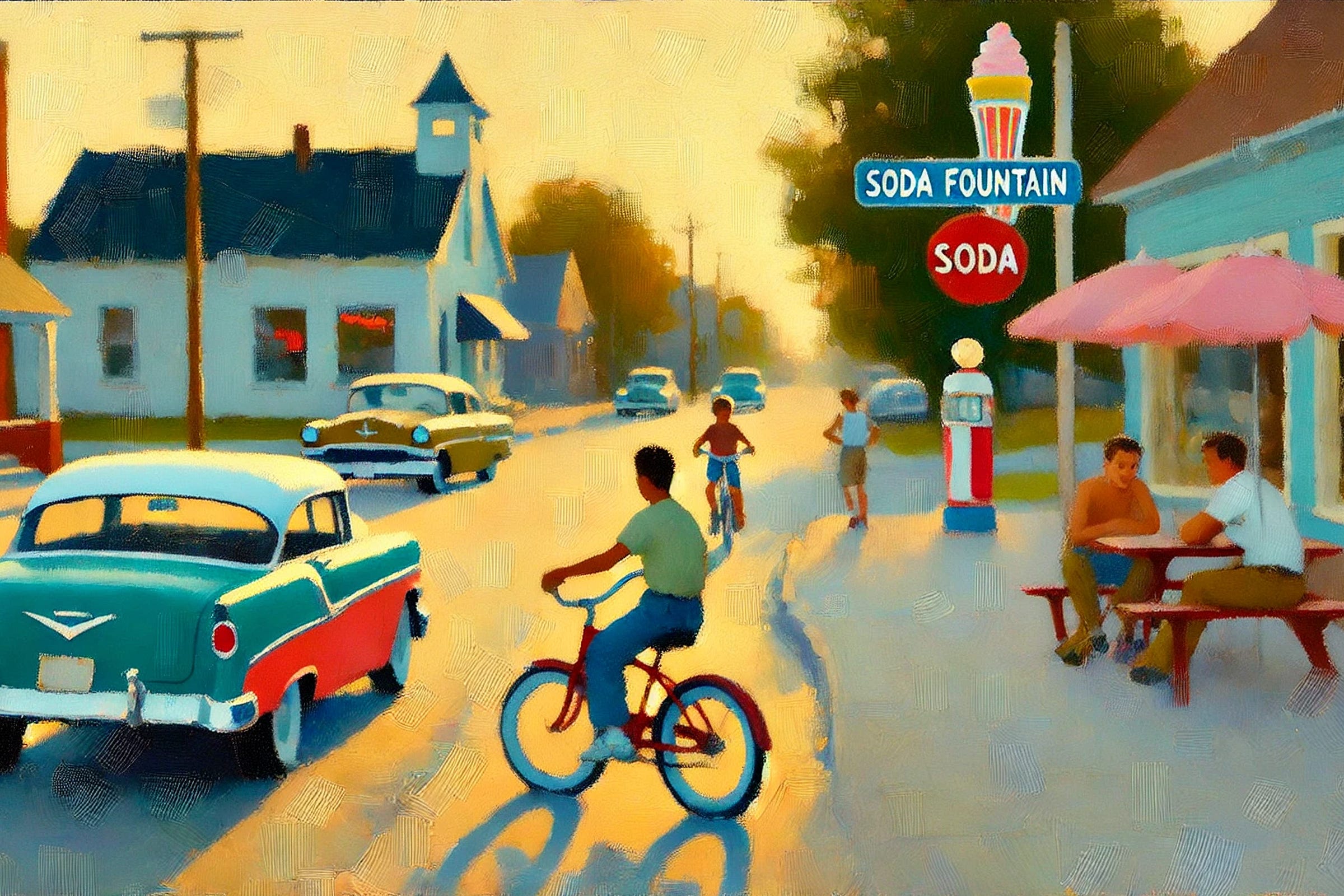What Are We Yearning For?
The America of yesteryear offered us a sense of belonging and community. Can we regain those essential facets of democratic life?
Reality’s Last Stand is a reader-supported publication. Please consider becoming a paying subscriber or making a one-time or recurring donation to show your support.
Whenever someone in America expresses nostalgia for the past, it is often interpreted in one of two ways. Either they are seen as confused, unaware of how much better life is today, prompting a response that highlights economic metrics showcasing the average American’s increased wealth compared to, say, 1950. Or, they are presumed to be bigoted, secretly yearning for the halcyon days when women and minorities were kept at the fringes of society, warranting condemnation and dismissal.
To be fair, both interpretations contain elements of truth. It is easy to forget that we live in the most prosperous period in human history. The average American enjoys access to technology that figures like Henry Ford and Steve Jobs could never have imagined. Some people who long for an idyllic past simply fail to appreciate how much progress we have made. Prejudice also persists in the United States. While we have made immense strides in reducing racism and sexism, “reduced” does not mean “eliminated.” As one example among many, in some circles on X it is fashionable to insist that women should not be allowed to vote, leaving little doubt about the aspects of the past they wish to revive.
Yet these voices are outliers. Most Americans do not wish to return to the era of Jim Crow or the days when women had few opportunities outside of the home.
So, what is fueling the pervasive discontent so many Americans feel? The answer doesn’t seem to lie in economics. While the economy is far from perfect—wages have stagnated in some sectors, and industries have been hollowed out—each generation continues to grow up wealthier than their predecessors. Nor can our collective unease be traced to the magnitude of external threats. Climate change may be a long-term challenge, but it lacks the immediate existential danger of World War II, the Cold War, or the Great Depression.
Instead, what seems to be missing in recent decades is something fundamental to civic life—something that traditional metrics fail to capture. Sociologist Robert Nisbet offered a compelling framework for understanding this in 1975, when he described America as being in a “twilight age.” Here’s how he put it:











